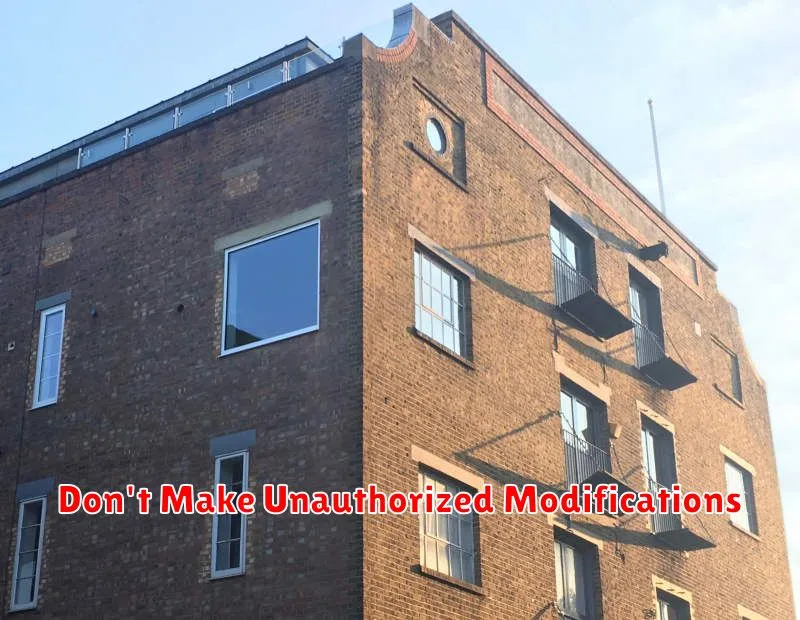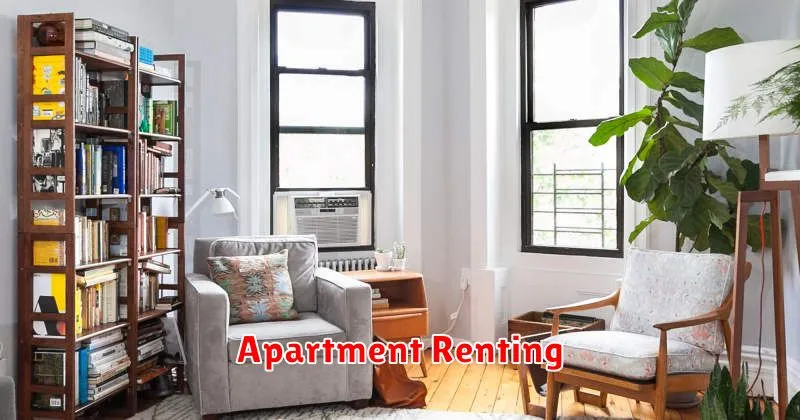Moving into your first apartment can be an exciting time, but it’s important to know the do’s and don’ts of renting before signing a lease. From finding the perfect place to navigating landlord-tenant relationships, there are many things to consider. This article will provide essential tips on what to do and what to avoid when renting an apartment, helping you make the most of your new home while protecting your rights and your wallet.
Do Your Research and Due Diligence
Before you even start looking at apartments, it’s important to do your research and due diligence. This means figuring out what you need and want in an apartment, as well as what you can afford. You should also research the different neighborhoods you’re considering, taking into account factors such as safety, convenience, and amenities.
Once you have a good understanding of your needs and wants, you can start looking at apartments. When you find an apartment you’re interested in, be sure to do your research on the landlord or management company. You can check online reviews, ask for references, and even visit the property in person to get a feel for the neighborhood and the building. Be sure to ask questions about anything that seems unclear or suspicious.
By taking the time to do your research and due diligence, you can help ensure that you find a safe and comfortable apartment that meets your needs and fits your budget.
Don’t Rush the Application Process
It’s tempting to get swept up in the excitement of finding the perfect apartment, but it’s crucial to resist the urge to rush the application process. Take your time to carefully consider all your options and thoroughly research each property before submitting an application.
Rushing can lead to costly mistakes, such as overlooking crucial details in the lease agreement or failing to adequately assess the neighborhood or building’s amenities. Take the time to read everything carefully, ask questions, and clarify any doubts you may have.
Remember, this is a significant financial commitment. Don’t let the excitement of a new place overshadow the importance of making a well-informed decision.
Do Read the Lease Agreement Carefully
The lease agreement is a legally binding contract between you and your landlord, outlining the terms of your tenancy. It’s not just a formality; it dictates your rights and responsibilities. Failing to read and understand the lease can lead to misunderstandings, disputes, and even legal issues.
Take your time to read the entire document carefully. Pay attention to key sections like rent payment, lease duration, pet policies, maintenance responsibilities, termination clauses, and any additional addendums.
Don’t hesitate to ask your landlord for clarification on any unclear terms. If you don’t understand something, it’s better to seek clarification upfront than to face consequences later.
Make sure you understand the consequences of breaking the lease. This includes the potential for financial penalties and eviction.
By taking the time to understand the lease agreement thoroughly, you can ensure a smooth and positive rental experience.
Don’t Skip the Apartment Walkthrough

An apartment walkthrough is a crucial step in the renting process. It’s your opportunity to thoroughly inspect the unit and document any existing issues. Don’t be shy about asking questions or pointing out concerns. This is your chance to ensure you’re not inheriting pre-existing problems that could cost you money and headaches down the line.
During the walkthrough, bring a notepad and pen to jot down any deficiencies, such as:
- Cracks in the walls or ceilings
- Dents or scratches on appliances
- Leaking faucets or plumbing issues
- Broken windows or faulty electrical outlets
- Unclean or damaged flooring
Take photographs of any issues you find as evidence for later reference. This will help you avoid being blamed for damage that existed prior to your occupancy.
Make sure to thoroughly inspect every room, including closets, storage spaces, and balconies. Don’t forget to check the appliances, such as the refrigerator, oven, dishwasher, and washing machine.
Ask the landlord or property manager to address any concerns you have during the walkthrough. It’s much easier to get repairs done before you move in than after you’ve settled.
By taking the time to carefully inspect the apartment and document any pre-existing issues, you can protect yourself from potential disputes and headaches later on.
Do Document Existing Damages
Before you move in, take the time to thoroughly inspect your apartment for any pre-existing damages. This is crucial to avoid being held responsible for damages that were already present when you took possession of the property.
Documenting existing damages with photos and detailed notes is crucial. It can help avoid disputes when you move out. Take pictures of everything, from cracks in the walls to worn-out carpets. Include the date and time on each photo for documentation.
If you discover any significant damage, be sure to inform your landlord or property manager in writing. This will create a paper trail that can be helpful in the future.
Don’t Forget to Ask Questions
When you’re renting an apartment, it’s crucial to have all your questions answered before you sign on the dotted line. After all, this is a big financial commitment, and you want to make sure you’re making the right decision. Here are some key questions you should ask:
About the Apartment
- What are the exact dimensions of the apartment?
- Is there any existing damage that needs to be addressed?
- Are any utilities included in the rent? If not, which ones are not?
- What is the parking situation like? Is there assigned parking, street parking, or a garage?
- What are the laundry facilities like? Are they in-unit, in the building, or off-site?
- Are pets allowed? If so, are there any restrictions on breed or size?
- Is there an elevator in the building? If so, is it reliable?
About the Lease
- What is the lease term? Is it a month-to-month lease or a longer term?
- What is the security deposit amount? Is it refundable?
- What are the late rent fees? What are the other penalties for breaking the lease?
- Is there a grace period for late rent? If so, how long is it?
- What are the procedures for ending the lease early?
About the Building and Neighborhood
- What is the building’s history? Are there any recent renovations or repairs?
- What is the building’s security like? Are there security cameras, a doorman, or other security measures in place?
- What are the noise levels like in the building and neighborhood?
- What is the neighborhood like? Are there any nearby amenities, like parks, restaurants, or grocery stores?
- What is the public transportation access like?
About the Landlord
- How responsive is the landlord to tenant requests? Is there a dedicated maintenance team or property manager?
- What are the landlord’s expectations for tenants? Are there any specific rules or regulations?
- Are there any ongoing renovations or repairs planned for the building?
Don’t be afraid to ask all the questions you have. This is your chance to get all the information you need to make an informed decision about your potential new home.
Do Negotiate Lease Terms
Negotiating lease terms is an often overlooked aspect of apartment renting. While landlords may seem firm on their initial offers, there’s often room for discussion. Don’t be afraid to ask for what you want, whether it’s a lower rent, a shorter lease term, or the inclusion of certain amenities.
Start by thoroughly reading the lease agreement. Identify any clauses that seem unreasonable or unfair. For example, you might want to negotiate a lower security deposit, especially if you have a good credit history.
Be prepared to make concessions. You might not get everything you want, but you’ll likely achieve a more favorable outcome by being willing to compromise.
Be polite and respectful when negotiating with the landlord. A friendly and professional demeanor can go a long way in securing a better deal.
Don’t Ignore Red Flags
Renting an apartment is a big decision, and it’s important to do your research and make sure you’re making the right choice. While it’s natural to be excited about finding a new place, don’t let that excitement cloud your judgment. Pay attention to any red flags that might indicate problems with the apartment, the landlord, or the neighborhood.
Here are a few red flags to watch out for:
- The landlord is unresponsive or difficult to contact. This could be a sign that they’re not reliable or that they don’t care about their tenants.
- The apartment is in poor condition. Look for signs of neglect, such as peeling paint, broken appliances, or leaks.
- The neighborhood feels unsafe. Pay attention to the overall vibe of the neighborhood and if it’s a place you feel comfortable living in.
- The lease agreement is vague or contains unfair clauses. Read the lease carefully before signing it and don’t be afraid to ask questions.
- The rent is significantly lower than other comparable apartments. This could be a sign that there’s something wrong with the apartment or the landlord.
If you notice any of these red flags, it’s important to take a step back and reconsider renting the apartment. It’s better to be safe than sorry, and you don’t want to end up in a situation that you regret. Trust your gut and don’t be afraid to walk away if something doesn’t feel right.
Do Pay Your Rent on Time
Prompt rent payment is crucial to maintaining a good relationship with your landlord and avoiding potential issues. Paying rent on time demonstrates your responsibility and commitment to your lease agreement. This practice ensures you avoid late fees, potential eviction proceedings, and damage to your credit score.
Landlords rely on rent income to cover expenses, and late payments can disrupt their financial stability. Set reminders and consider automatic payment options to ensure your rent is always paid on time. By being punctual, you foster a positive and respectful landlord-tenant relationship, which can be beneficial in the long run.
Don’t Make Unauthorized Modifications

Before you even think about painting your walls or installing new fixtures, consult your lease. Unauthorized modifications are a major violation of your lease agreement and could result in hefty fines or even eviction.
Your landlord has a right to maintain the property in a certain condition, and unauthorized modifications can impact their ability to do so. For example, if you install a new dishwasher without their permission, they might not be able to easily remove it when you move out, causing inconvenience and potential damage.
Remember, even seemingly minor changes like hanging pictures can be considered unauthorized modifications if not explicitly permitted in your lease. Always seek permission from your landlord before making any changes to your apartment, no matter how small.
Do Communicate with Your Landlord
Communication is key in any relationship, and your landlord-tenant relationship is no exception. Open and honest communication can prevent misunderstandings and help you resolve issues quickly.
It’s always best to address any problems as soon as they arise. If you have a maintenance request, notify your landlord promptly and in writing. Keeping a record of your communication, such as through email, can be helpful in case of any disputes.
Your landlord is there to help you, so don’t hesitate to reach out if you have any questions or concerns.
Don’t Violate Lease Terms
The lease agreement is a legally binding document that outlines the rules and regulations of renting an apartment. It’s crucial to understand and adhere to these terms, as violating them can lead to serious consequences, including eviction.
Here are some common lease violations to avoid:
- Paying rent late: Late rent payments can result in late fees and potentially even eviction.
- Subletting without permission: Most leases prohibit subletting, which means renting out your apartment to someone else.
- Making unauthorized modifications: Any changes to the apartment, such as painting or installing fixtures, should be approved by the landlord in writing.
- Having unauthorized pets: If your lease restricts pets, having an unauthorized pet can lead to penalties.
- Exceeding the allowed occupancy: Leases usually specify the maximum number of people allowed to reside in the apartment. Exceeding this limit is a violation.
- Noise violations: Excessive noise or disturbances can lead to complaints and potential legal action.
Before signing a lease, thoroughly read and understand its terms. Ask your landlord any questions you have and ensure you are aware of any potential violations. By understanding and adhering to the lease terms, you can avoid legal issues and ensure a smooth renting experience.

